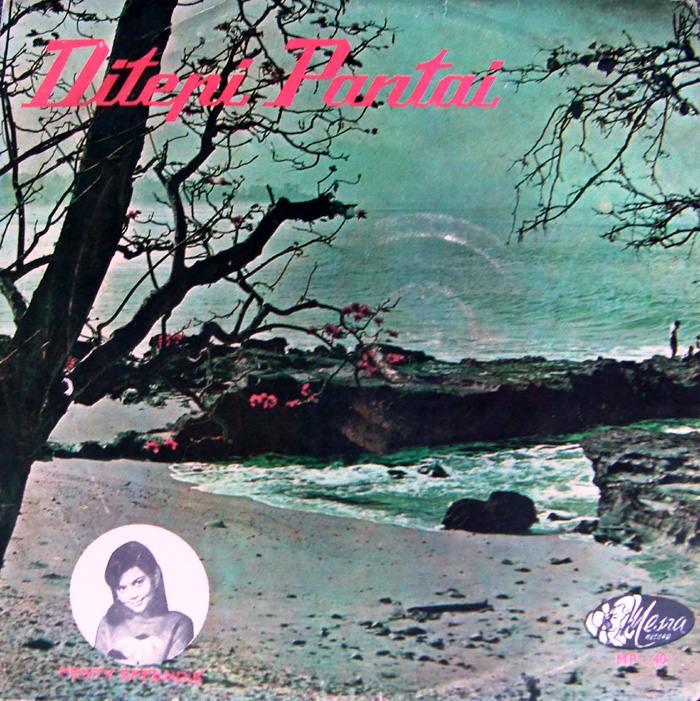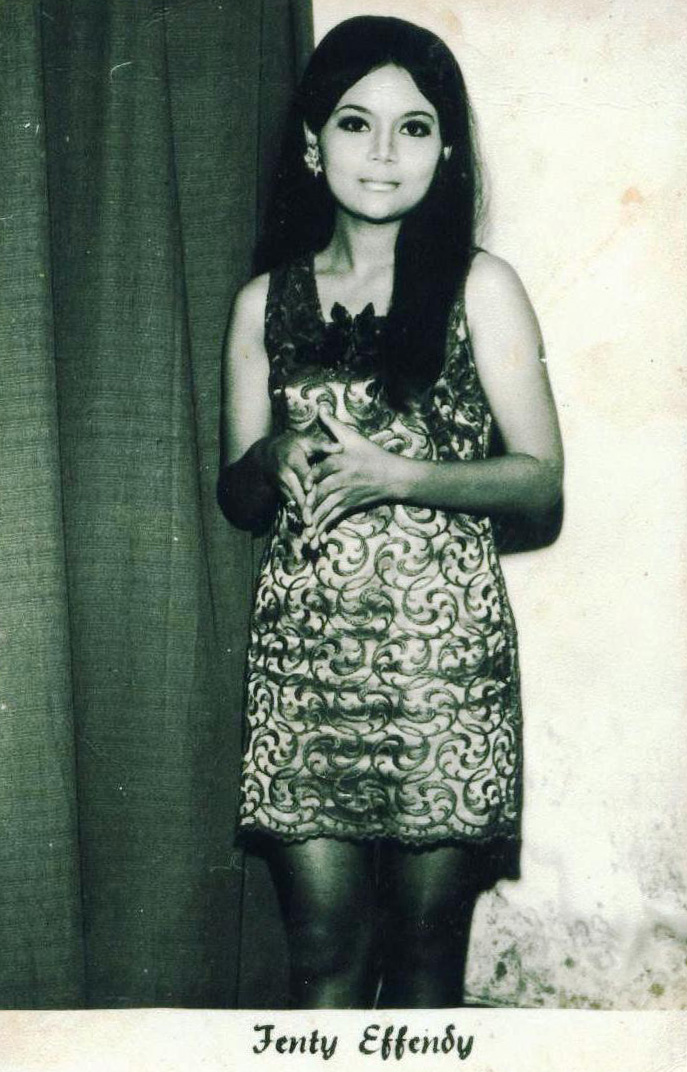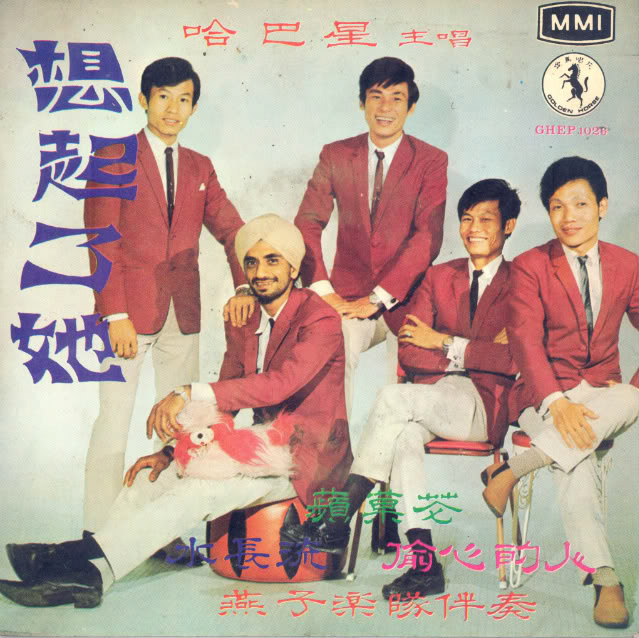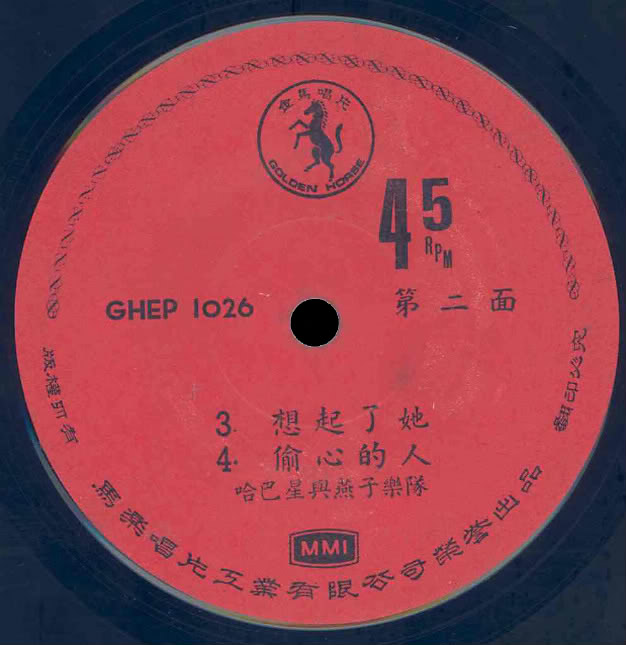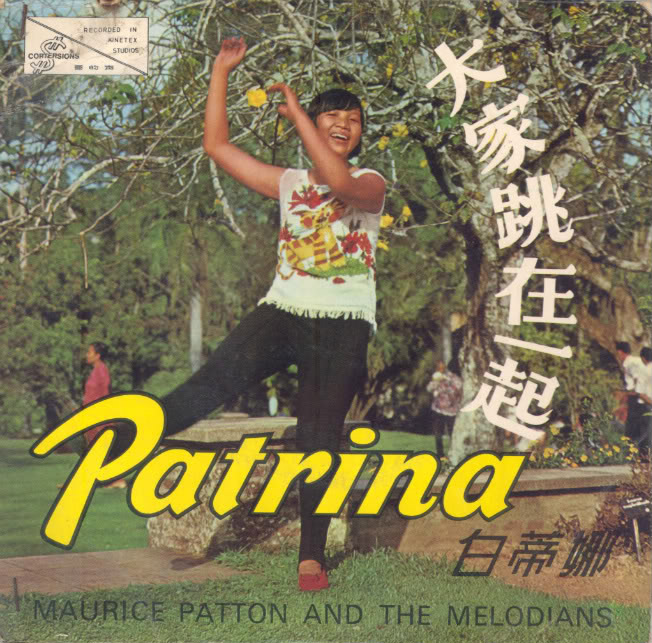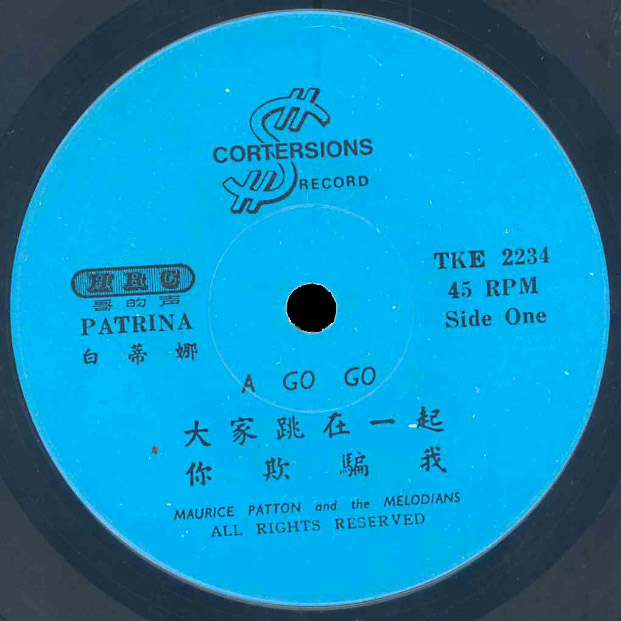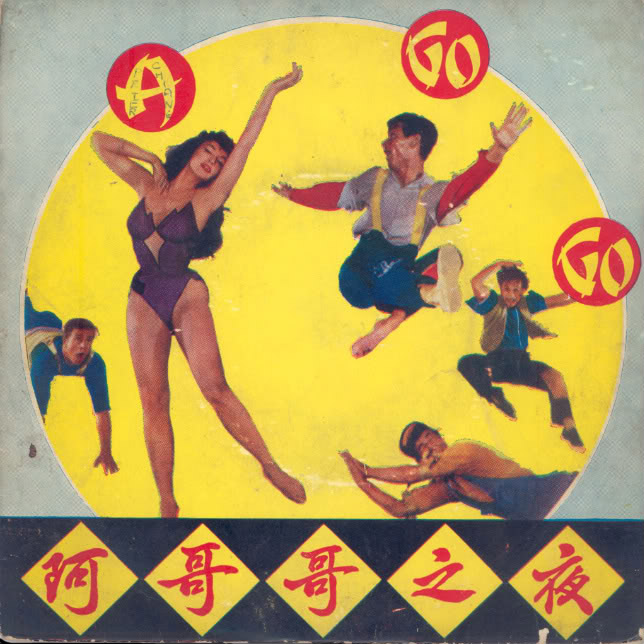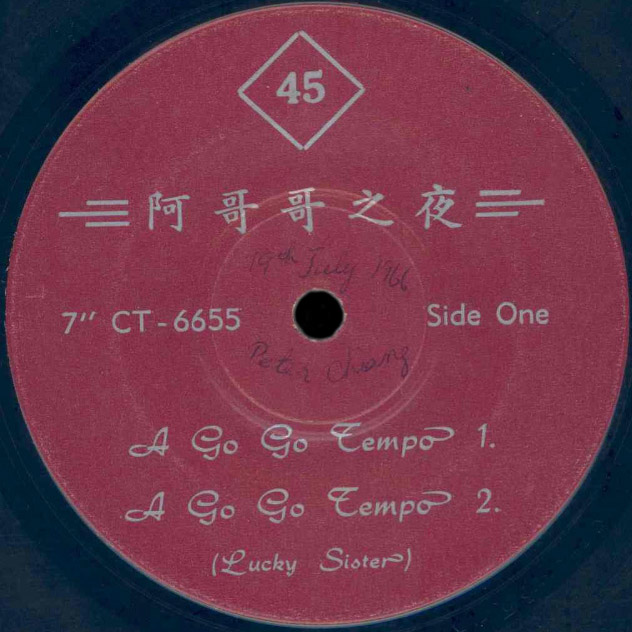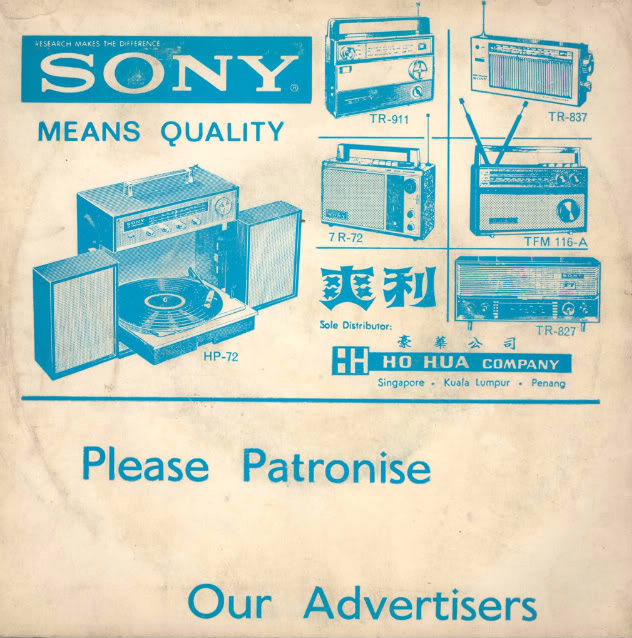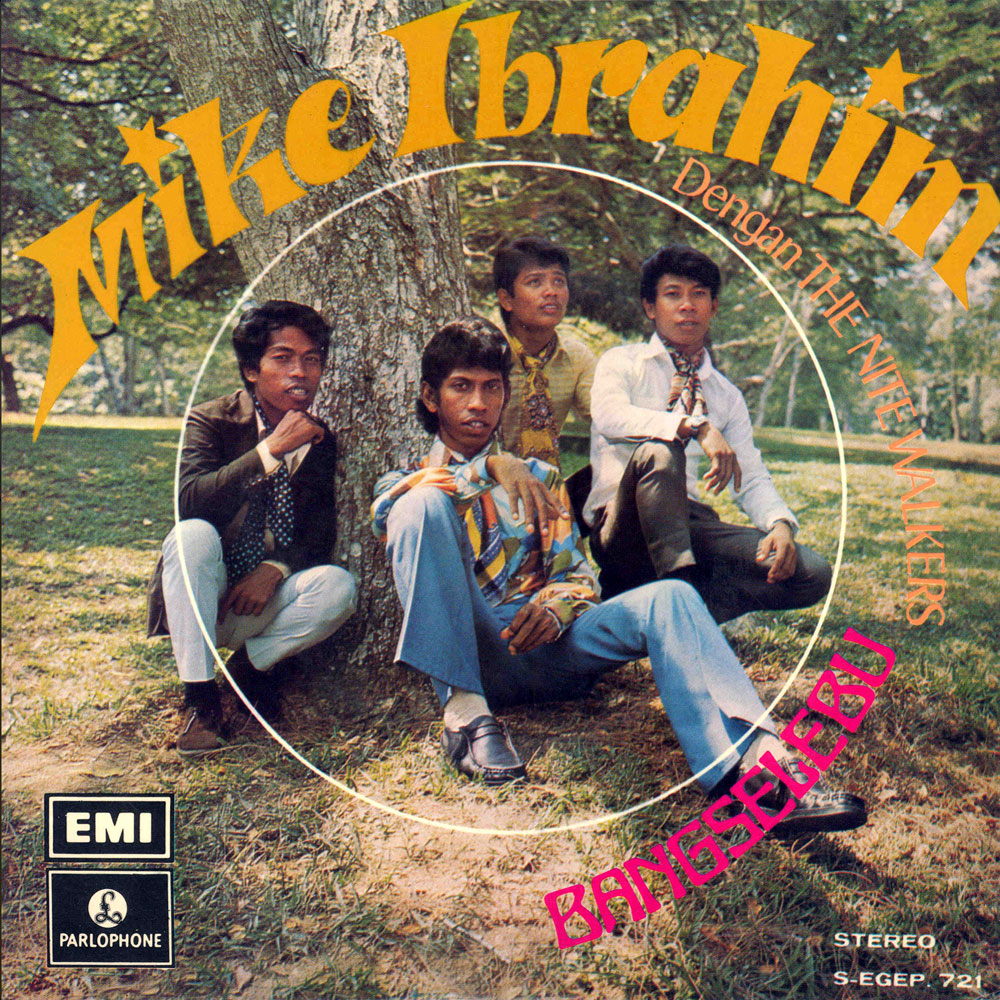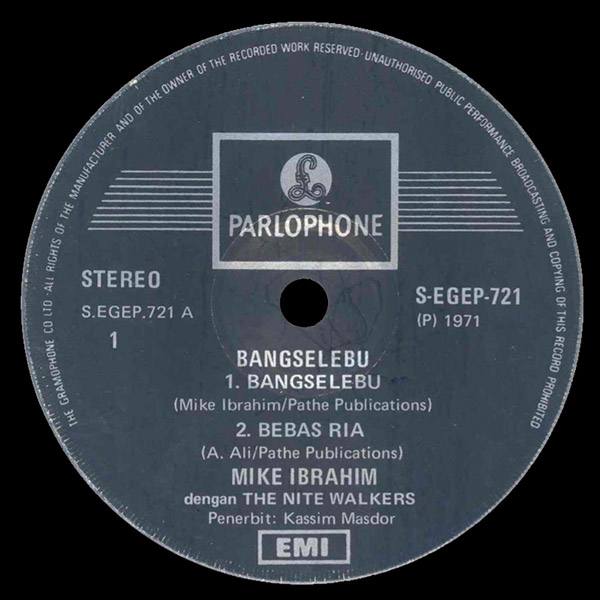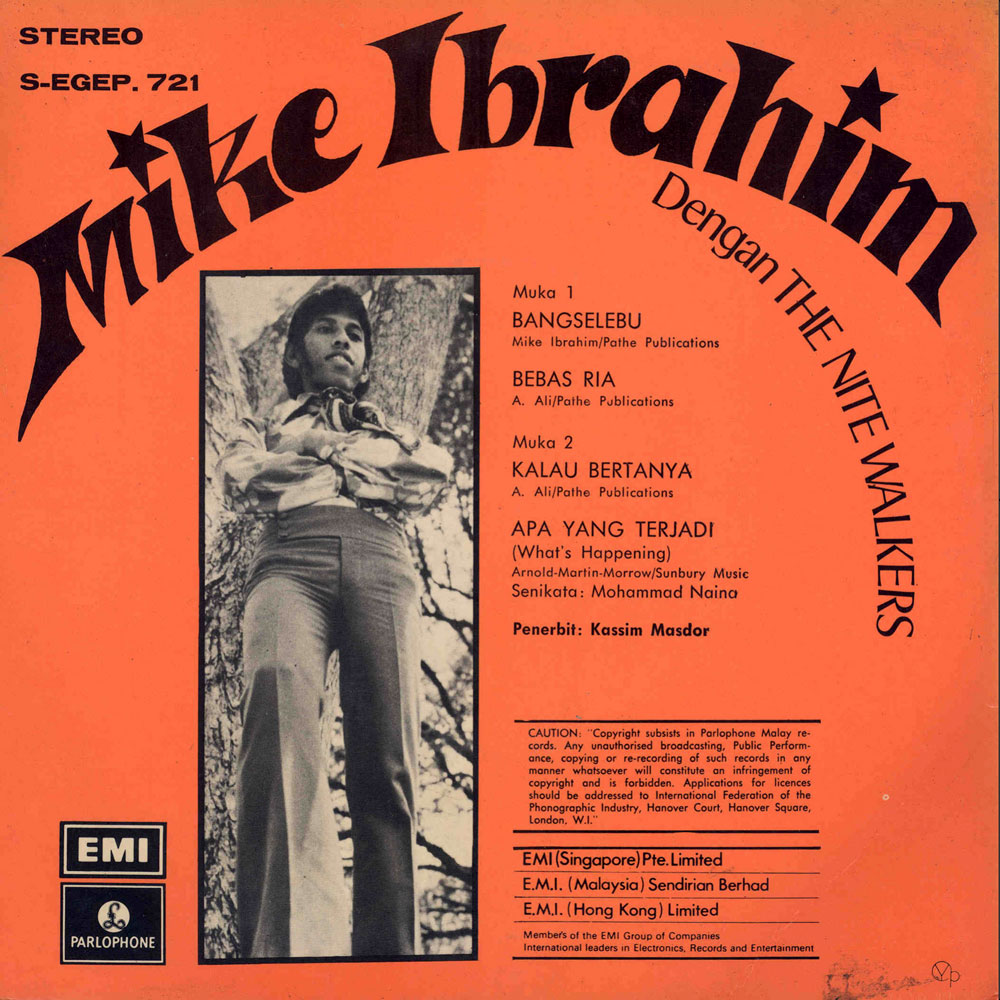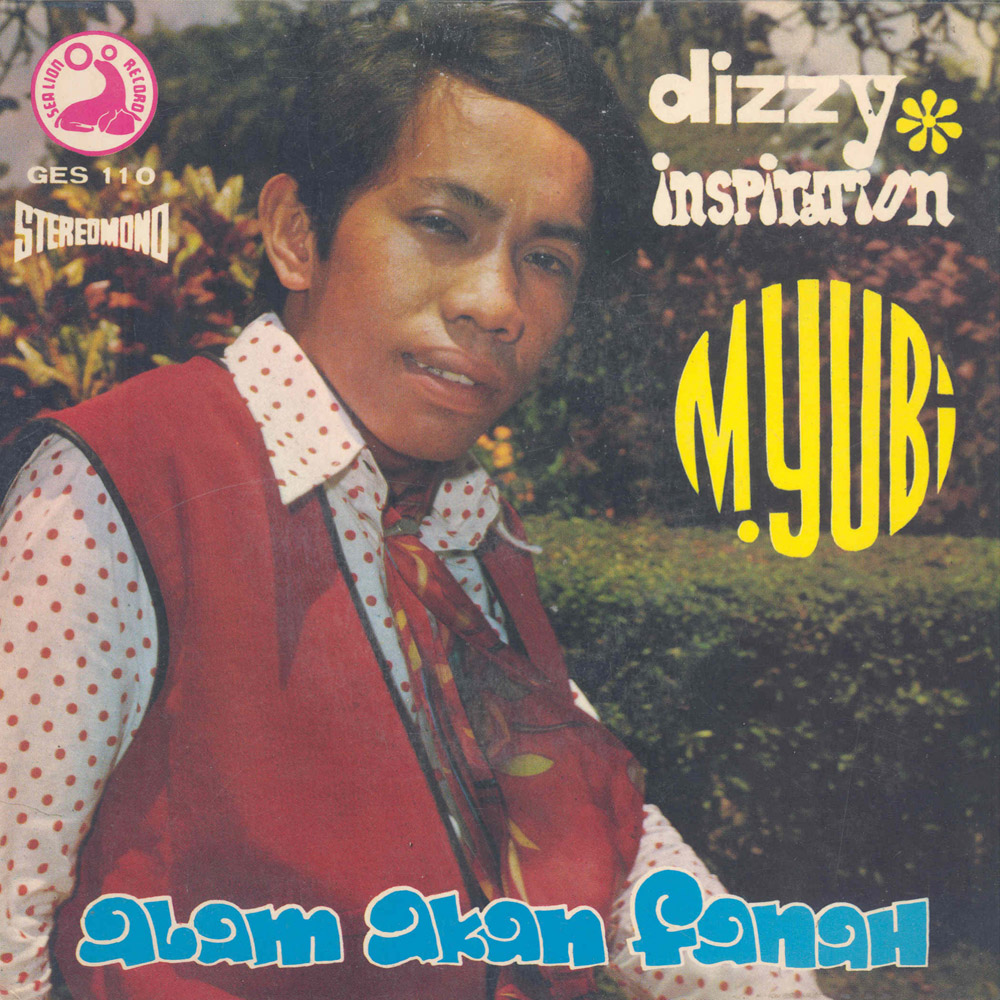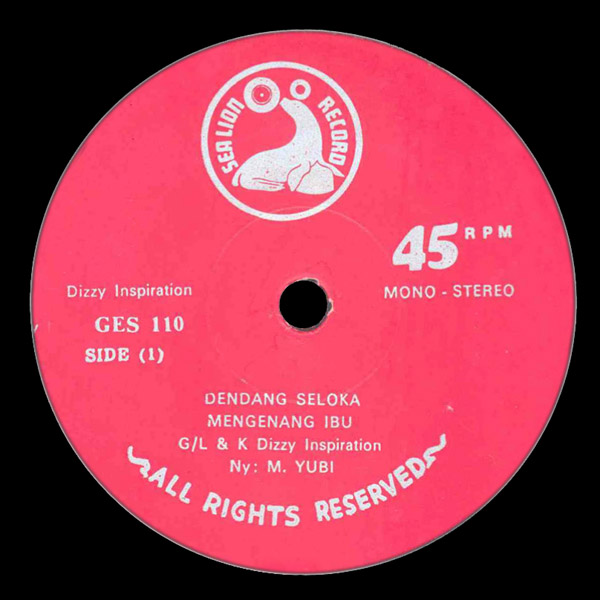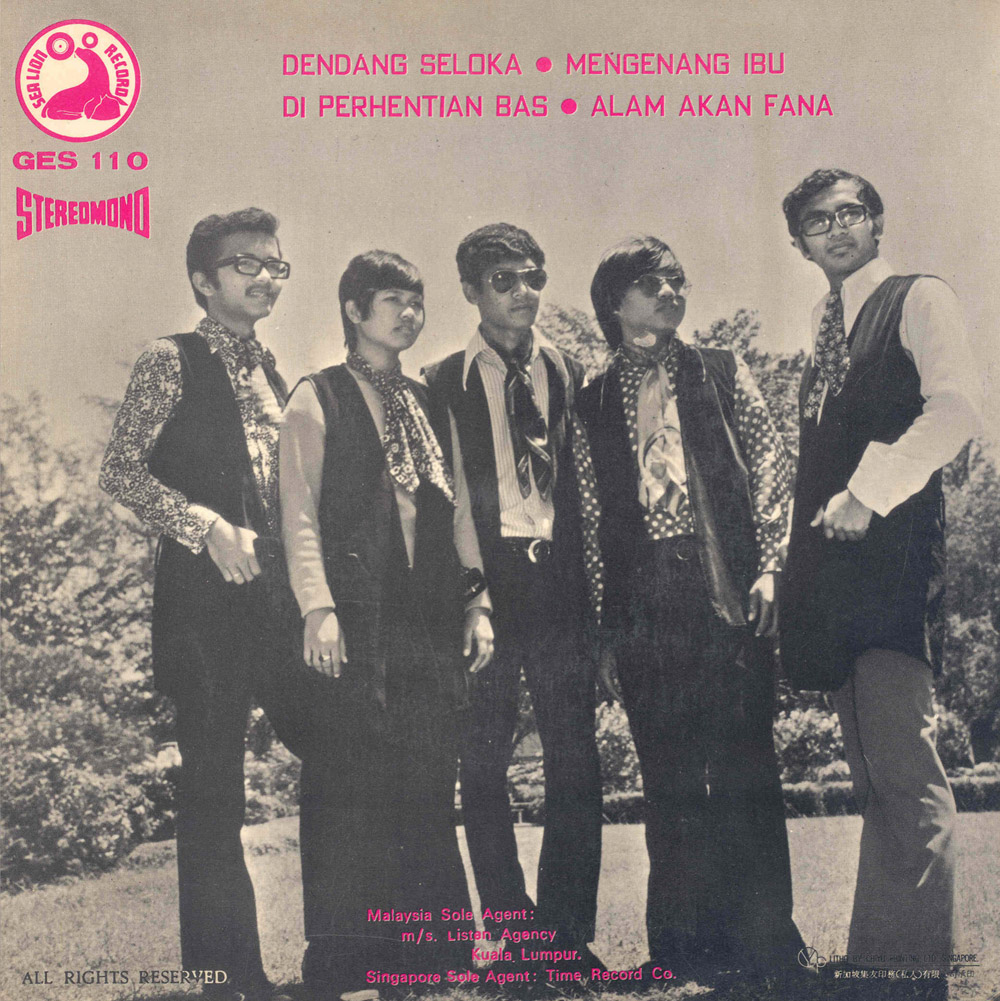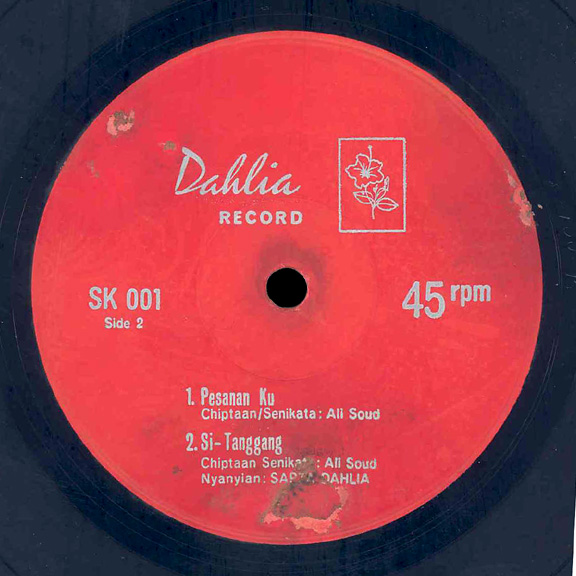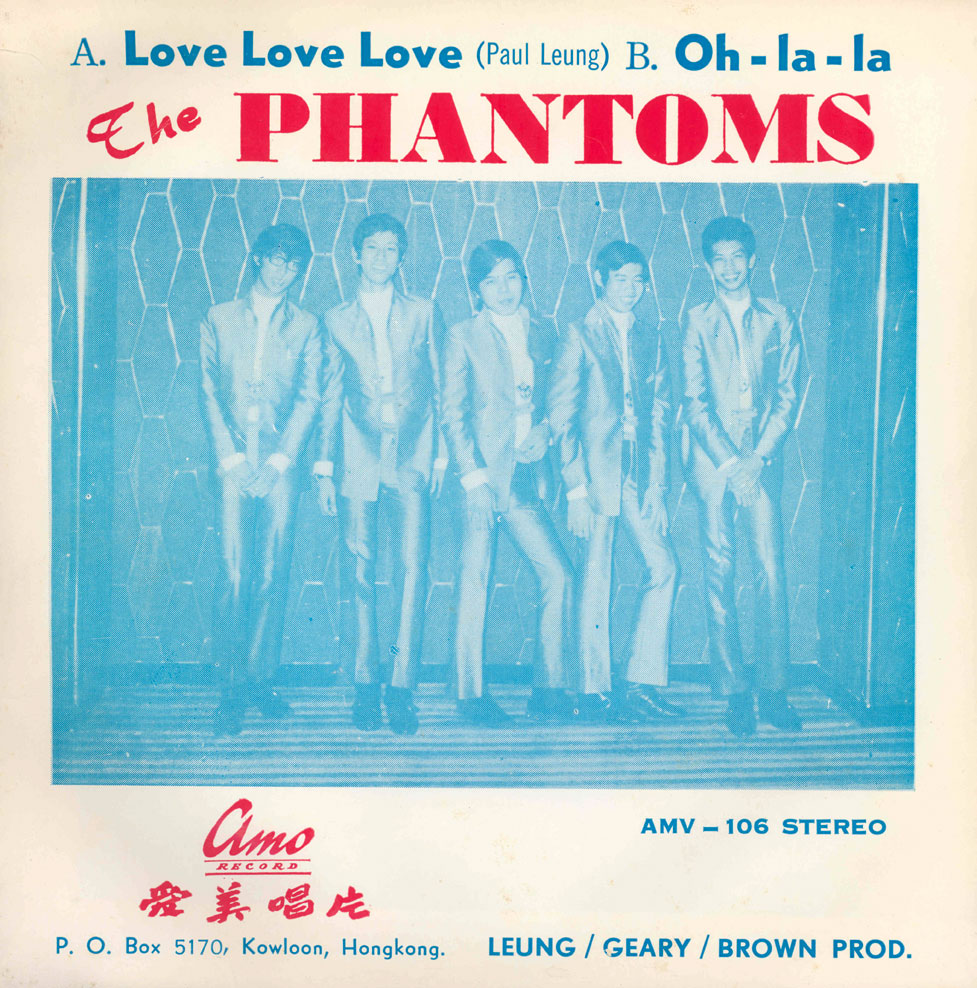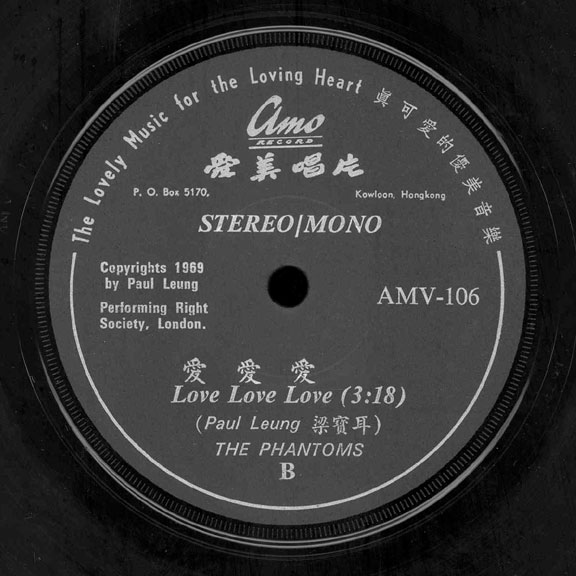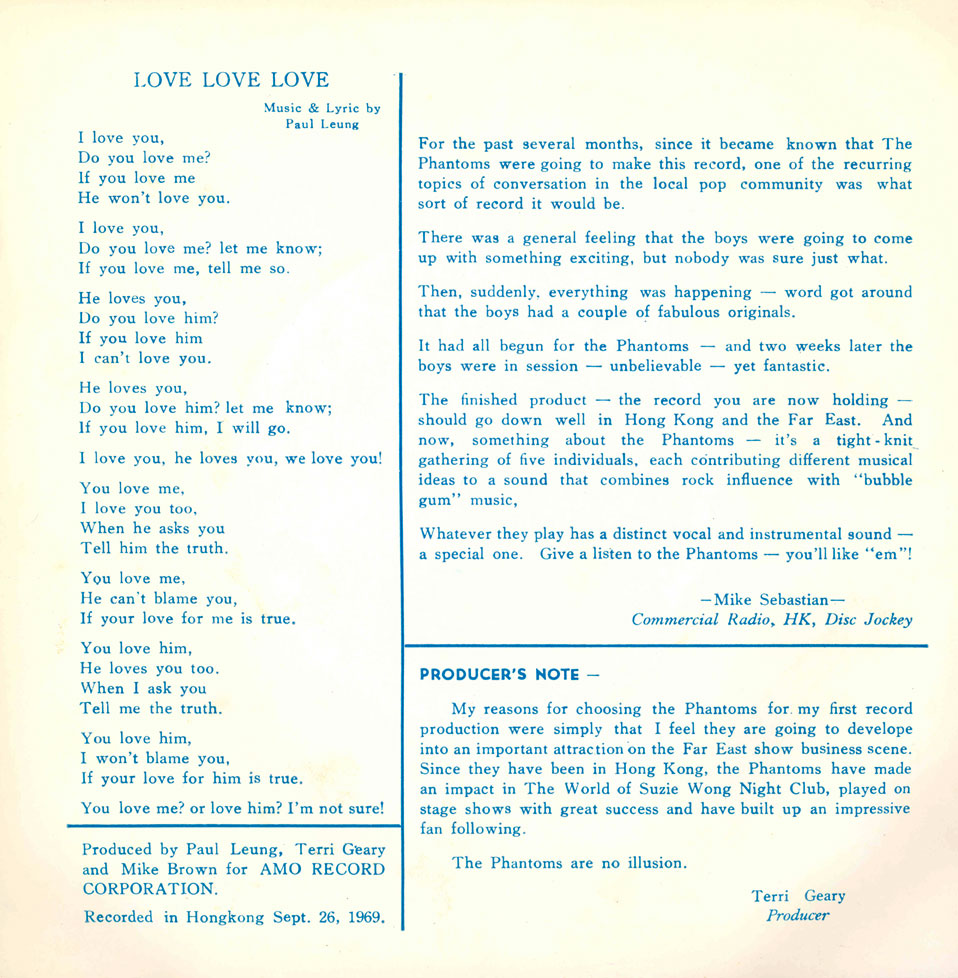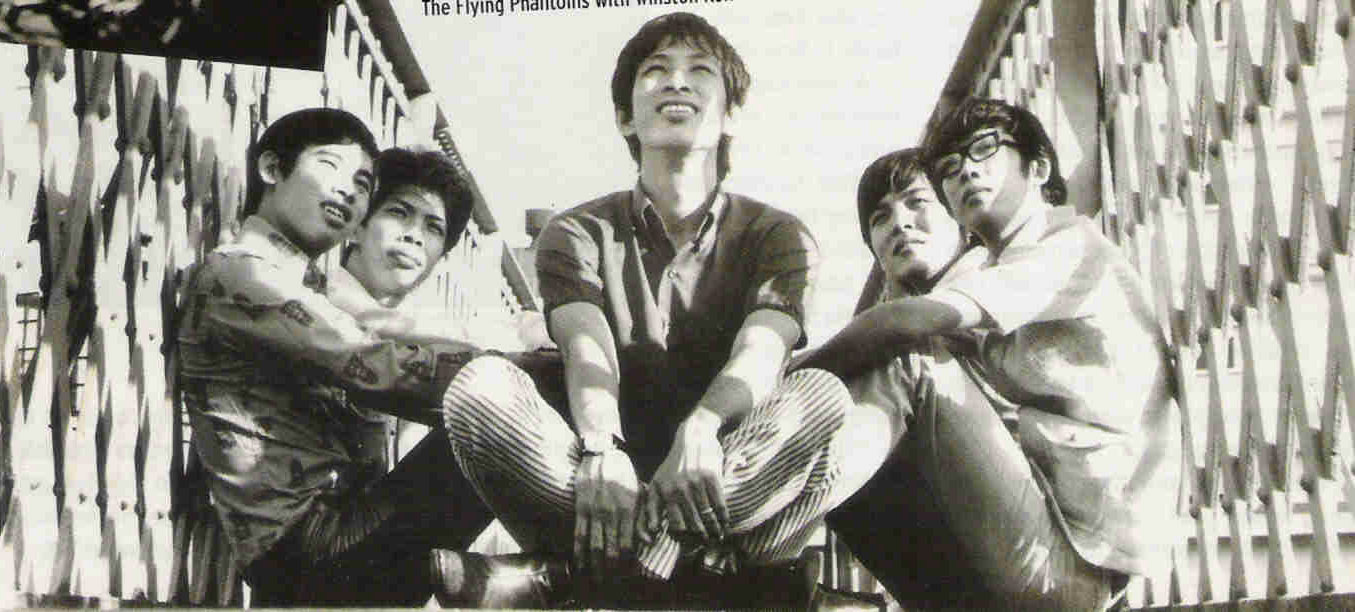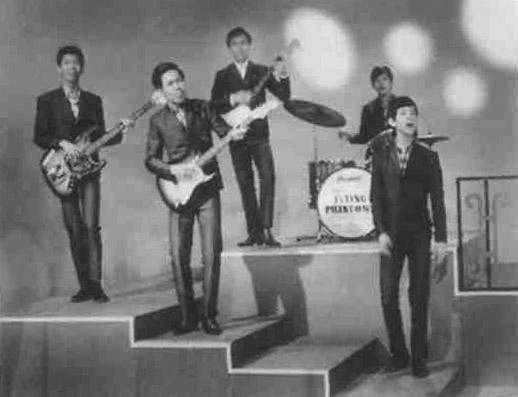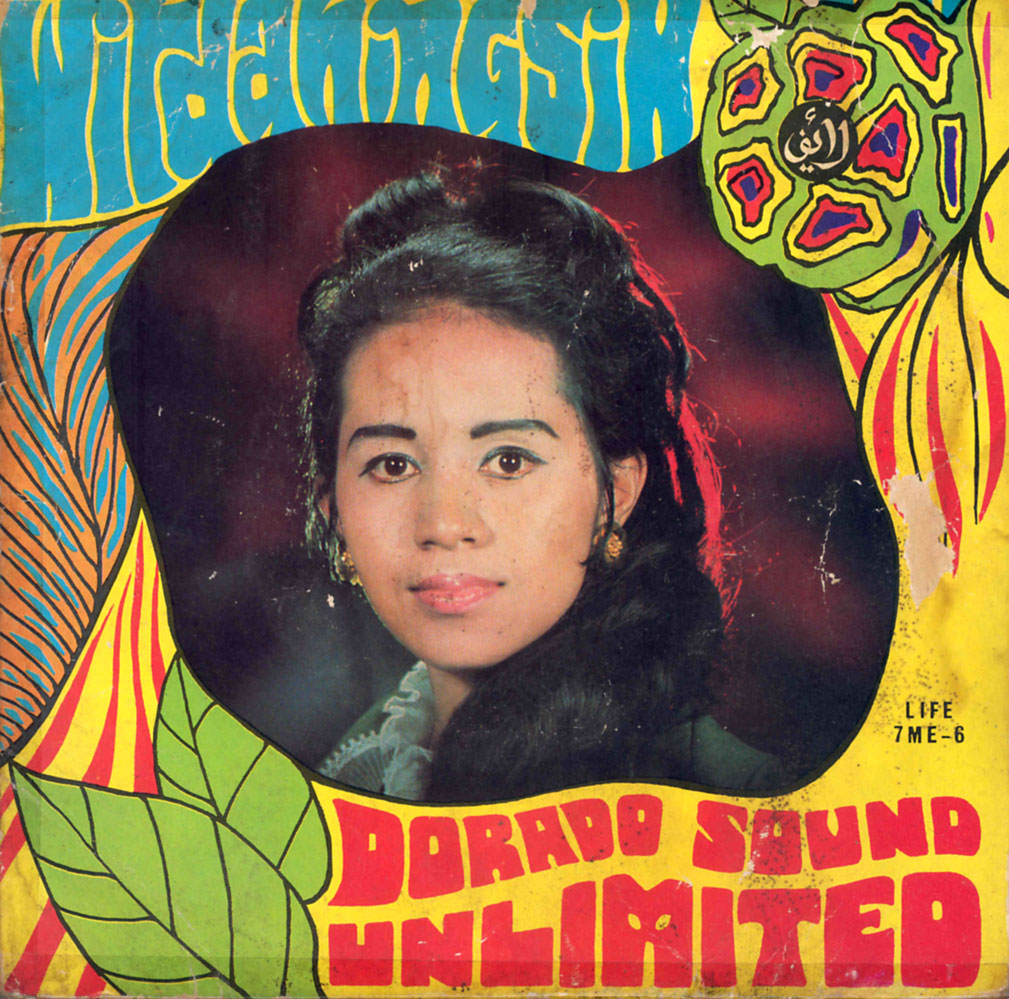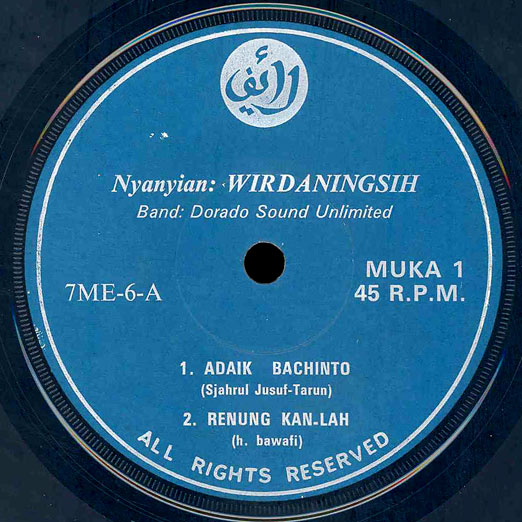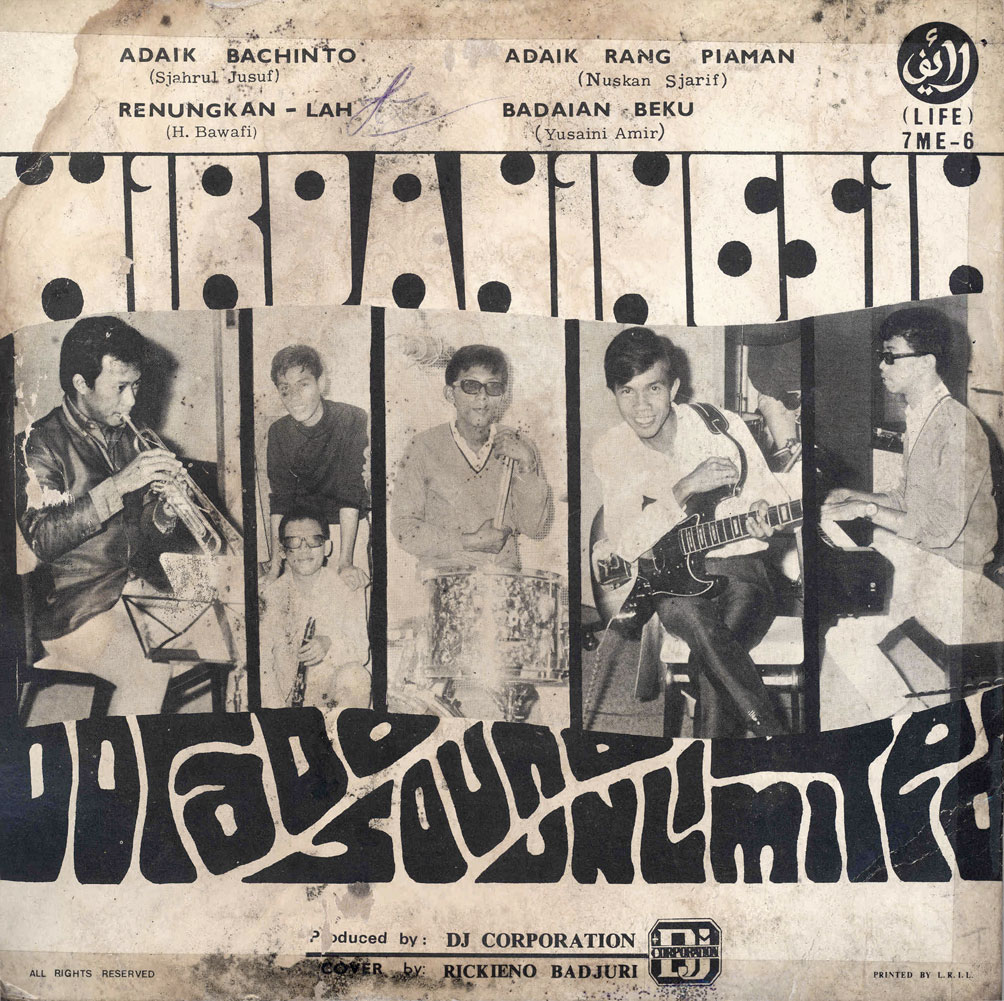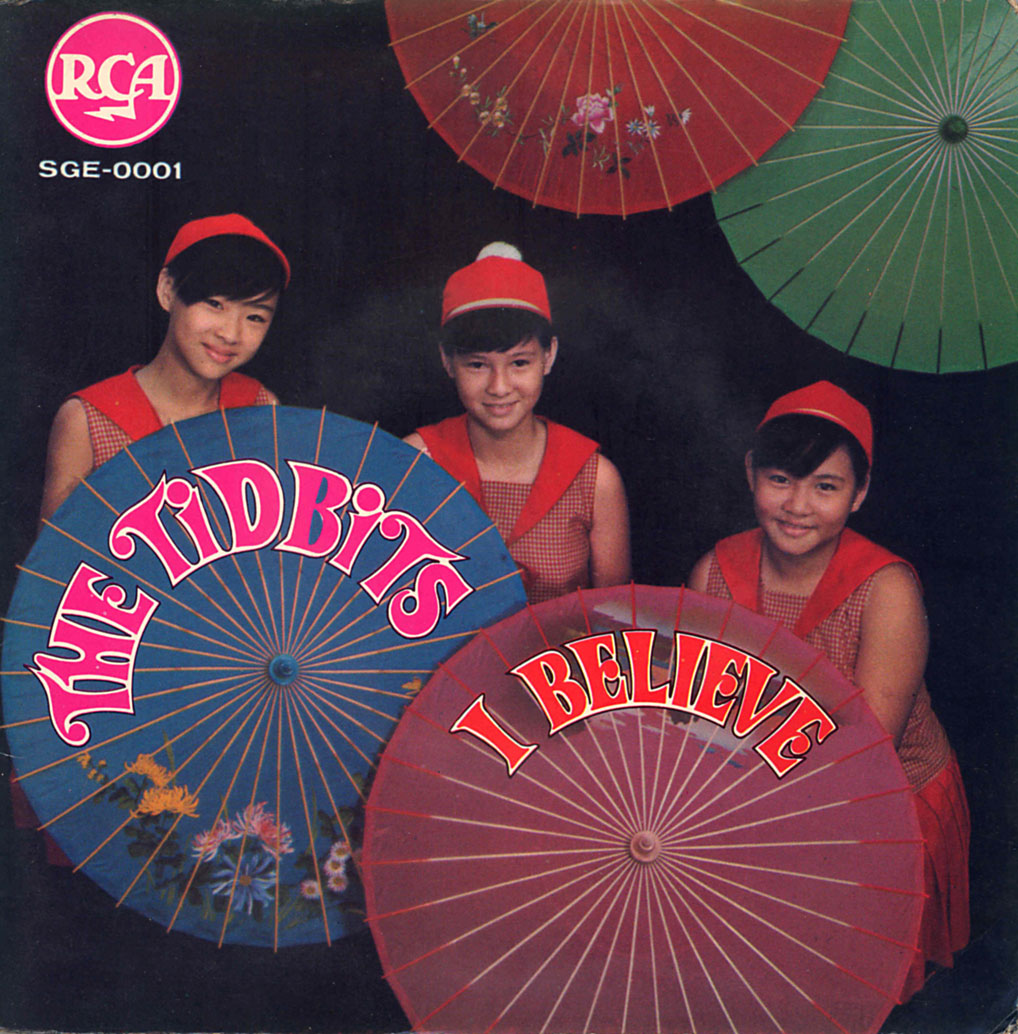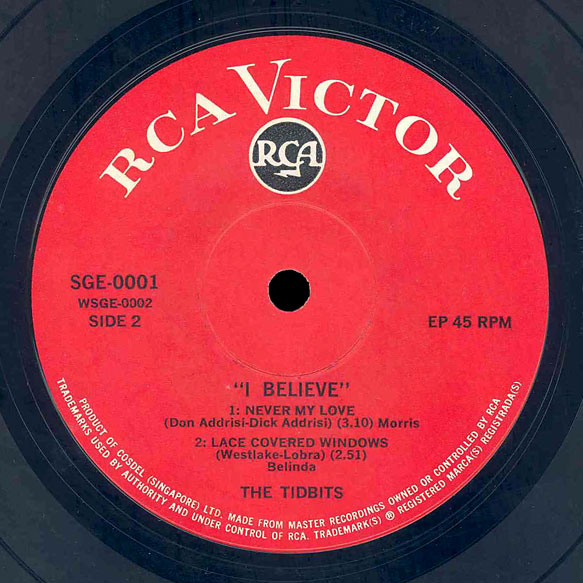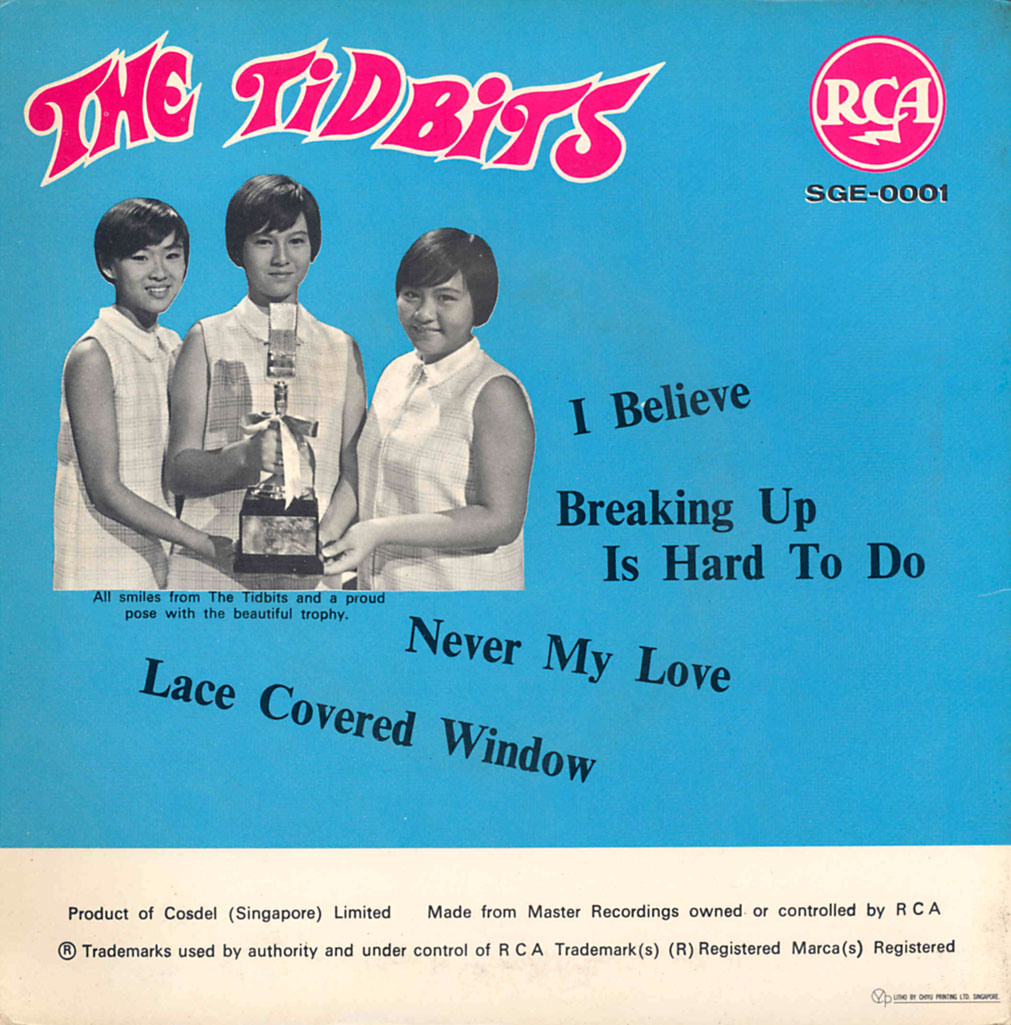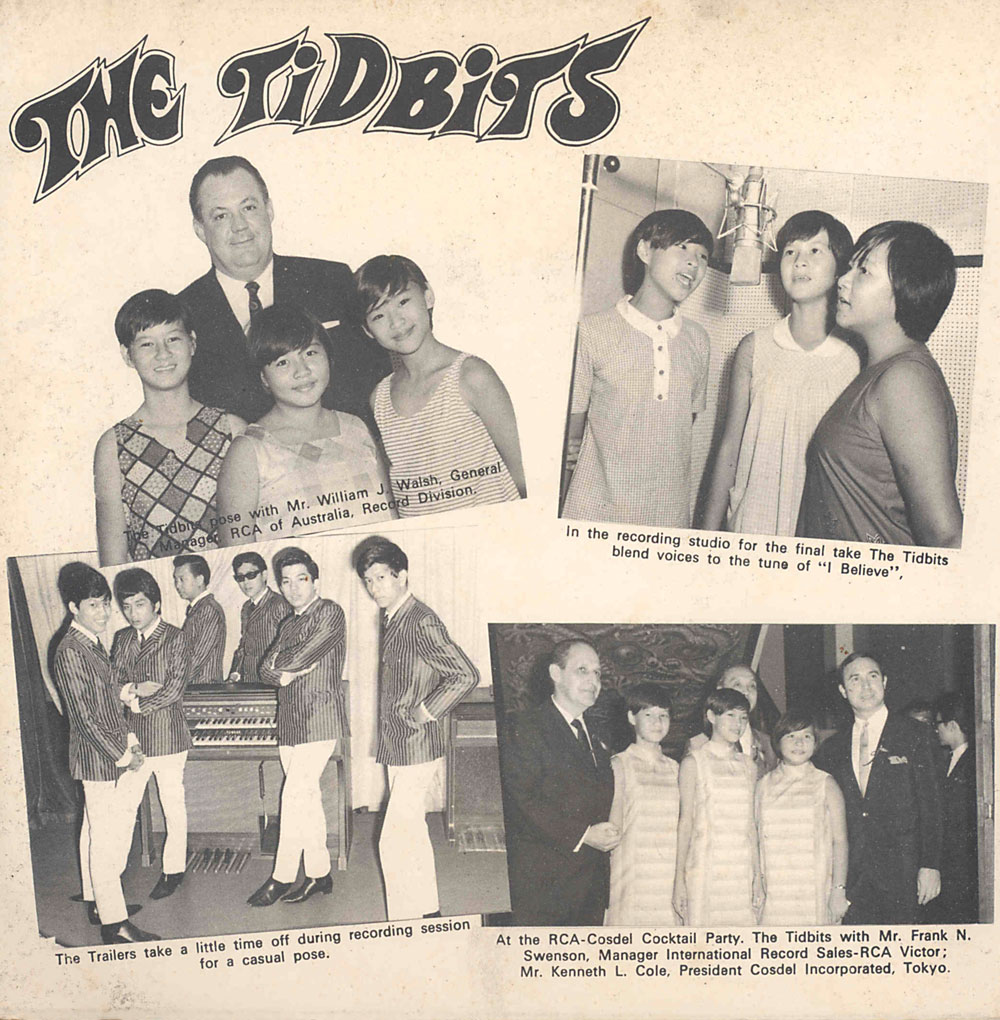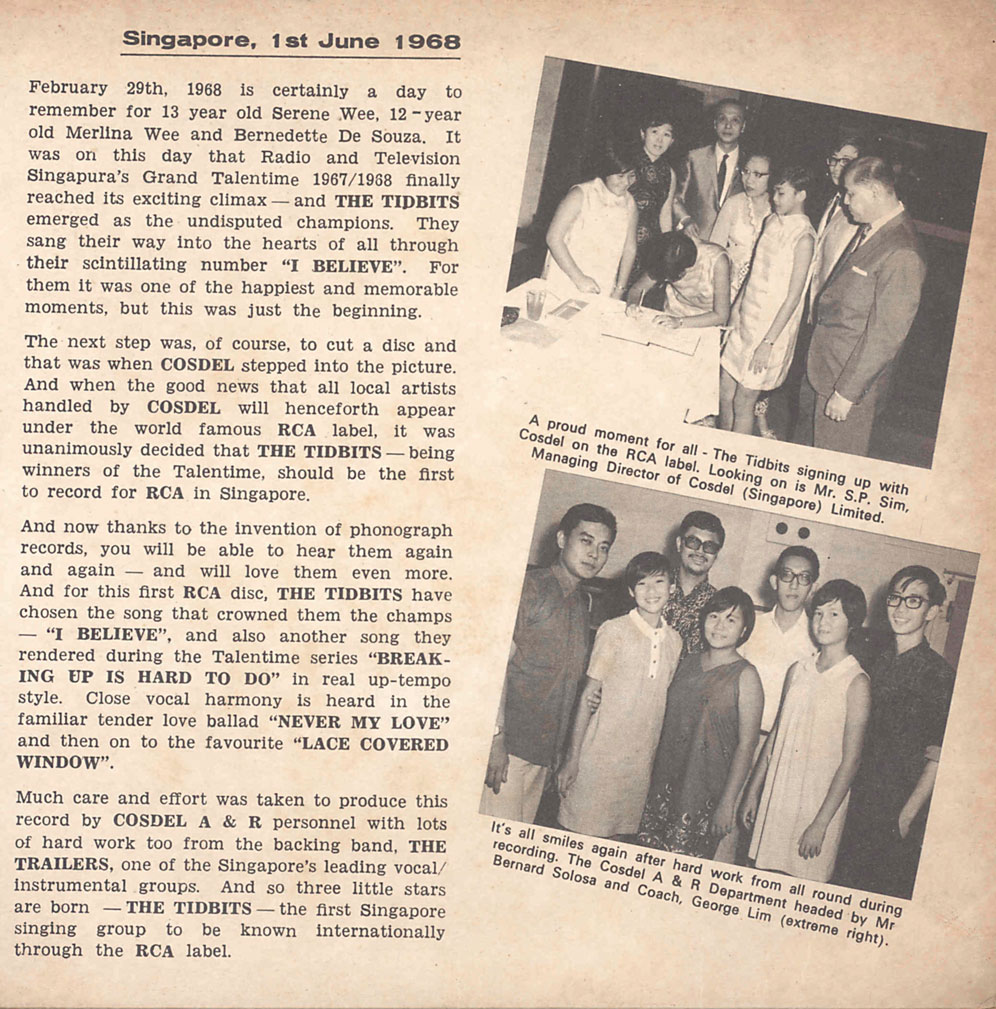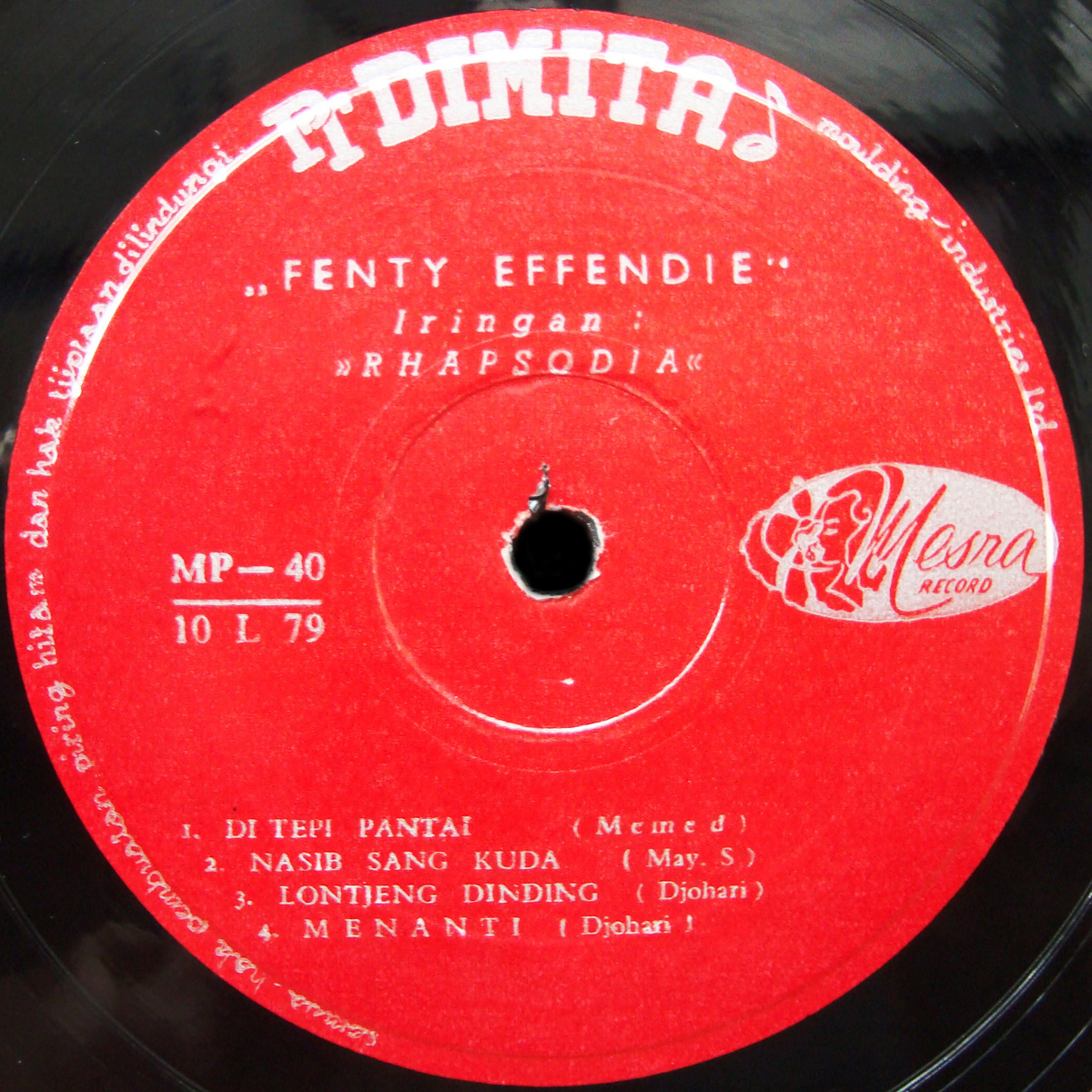 According to the liner notes of her first album, Fenty Effendie (also spelt Effendy or Effendi) was spotted by a TV producer singing in Bandung, West Java, at the age of 13. He took her to Jakarta where she appeared on TV for the first time in March 1965 and soon after recorded her first LP with the band Medenasz.
According to the liner notes of her first album, Fenty Effendie (also spelt Effendy or Effendi) was spotted by a TV producer singing in Bandung, West Java, at the age of 13. He took her to Jakarta where she appeared on TV for the first time in March 1965 and soon after recorded her first LP with the band Medenasz.
Regular performers on the TV program that Fenty appeared on were the children’s group Noor Bersaudara. When Noor Bersaudara performed in Bandung they invited Fenty to be a guest vocalist. Fenty appeared in a number of films in the 1960s and 1970s, but continued to sing as well. A report from the magazine Tempo states that she had taken up singing Kasidah songs, which are of Arabic origin with an Islamic theme. Fenty said that this style of music demanded a modest presentation, but that she always got captured by the rhythm and couldn’t resist swaying her hips and dancing in a sexy style. Perhaps this was why she got the loudest applause when, along with other singers, she performed at a Koran recitation contest in Surabaya in September 1974.
The three songs presented here are from a late 1960s album where Fenty is backed by the band Rhapsodia from Bandung. In the early 1970s they became Freedom of Rhapsodia and specialised in heavy rock, but at this stage they still had a soft-psych/pop-rock sort of sound. The band was to experience many changes of personnel, but the line-up when this LP was recorded was probably Utte M. Thahir (bass), Alfred (guitar), Ibung (drums), Sondang (keyboards) and Alam (vocals). None of the songs on the album are written by members of the band and it is most likely that the whole project was put together by the record company.
“Ditepi Pantai” (“On the Beach”) is written by Memed. In this song Fenty is on the beach alone, watching the fishing boats. She misses her friend who is far away and asks the wind to deliver her greetings to him.
“Menanti” (“Waiting”) is written by Djohari. Here Fenty sings how she has been waiting, always waiting day and night for her loved one to return.
“Kebon-Binatang” (“Zoo”) is another song written by Djohari. In this last song Fenty is at the zoo and describes all the animals; the Indian elephant, the African lion, the Arabian camel, and Cheetah, Tarzan’s monkey, who eats here lipstick.
Other songs on the album are credited to May S., Fenty/Anda, S. Effendie and two more by Djohari, and many of these are in the Sundanese language and traditional song style of Fenty’s native Bandung.
Information about Freedom of Rhapsodia has been taken from an article by Gatot Widayanto on the Music for Life blogsite.
The photograph of Fenty has been taken from the Koleksi Tempo Doeloe blogsite.

